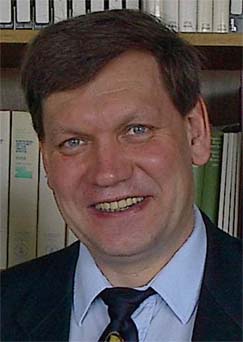Press Release: Research reveals ageing related to genetic programming
Greetings,
Surprise! Recently Journalism.co.uk has unexpectedly published Press Release about our peer-reviewed study:
Testing predictions of the programmed and stochastic theories of aging:
Comparison of variation in age at death, menopause, and sexual maturation.
Biochemistry (Moscow), 2012, 77(7), 754-760.
http://www.ncbi.nlm.nih.gov/pmc/articles/PMC3428266/
Full text of this Press Release is published here:
http://www.journalism.co.uk/press-releases/research-reveals-ageing-related-to-genetic-programming/s66/a552156/
We have not seen it before its publication, so we could not correct it. Here are some excerpts:
-----------------------------------------------------------
Surprise! Recently Journalism.co.uk has unexpectedly published Press Release about our peer-reviewed study:
Testing predictions of the programmed and stochastic theories of aging:
Comparison of variation in age at death, menopause, and sexual maturation.
Biochemistry (Moscow), 2012, 77(7), 754-760.
http://www.ncbi.nlm.nih.gov/pmc/articles/PMC3428266/
Full text of this Press Release is published here:
http://www.journalism.co.uk/press-releases/research-reveals-ageing-related-to-genetic-programming/s66/a552156/
We have not seen it before its publication, so we could not correct it. Here are some excerpts:
-----------------------------------------------------------
Press Release
Research reveals ageing related to genetic programming
Want to know about the mystery of why we age? Groundbreaking new research may have brought us one step closer
Posted: 20 February 2013
Research scientists concerned with the nature of human ageing have found, surprisingly, that the timing of the ageing process may be run by our ‘biological clocks’ as accurately and predictably as predetermined genetic events, like puberty.
Previously, many scientists believed that the early stages of human development were genetically programmed and could be accurately predicted, while ageing events like menopause took place more randomly as bodies wear out. However, researchers found that “age at menopause has surprisingly small variability as if it is determined by biological clocks rather than by random loss of oocytes.”
Dr. Leonid Gavrilov, one of the co-authors of the new research entiled Testing Evolutionary Theories of Ageing and Longevity, said: "This new finding is important because of heated debates among scientists on the nature of human ageing - whether it is simply a wearing-out, like an accumulation of random damage, or a genetic program similar to other early developmental programs like reaching sexual maturity."
Dr. Gavrilov went on to say that research of this kind has a "profound effect" on the possibility of lengthening the healthy human lifespan. "If ageing is a wearing-out process, like in cars and other machines, then the emphasis should be on maintenance and repair through stem cells and other research. However, if ageing is a genetic program then the emphasis should be on identification of 'ageing' genes and attempts to reprogram it."
...
The researchers’ peer-reviewed study on ageing has been gathering much-deserved attention from the scientific community, having already been published in an academic journal and earning researchers an invitation to discuss their findings at a seminar at the University of Southern California Los Angeles on 1 March.
Notes for Editors
"Testing Evolutionary Theories of Ageing and Longevity"
When: Friday, March 1 at 3 pm
Where: USC Longevity Institute (3715 McClintock Ave, Los Angeles, CA 90089)
Related peer-reviewed study: http://www.ncbi.nlm.nih.gov/pmc/articles/PMC3428266/
---------------------------------------------------------------
Guess, what things need to be corrected here?



0 Comments:
Post a Comment
<< Home